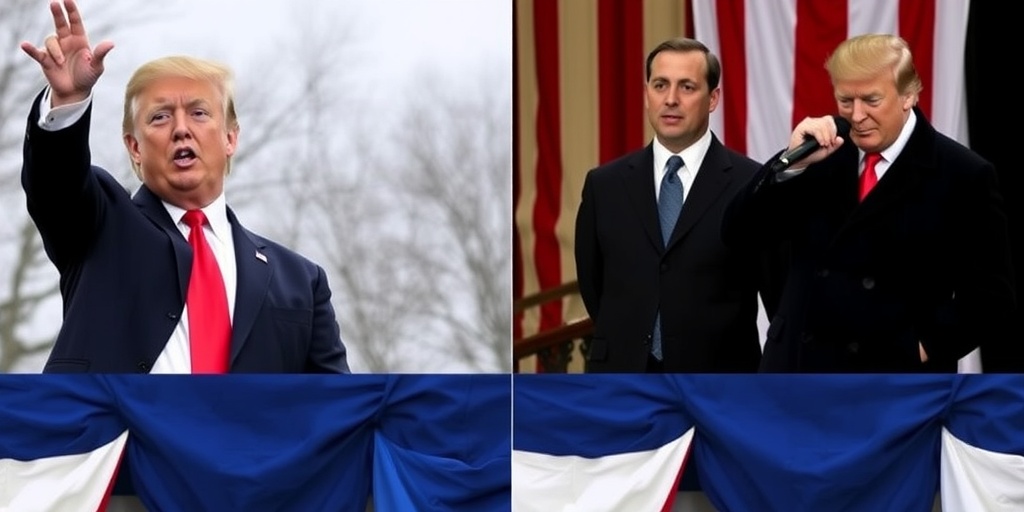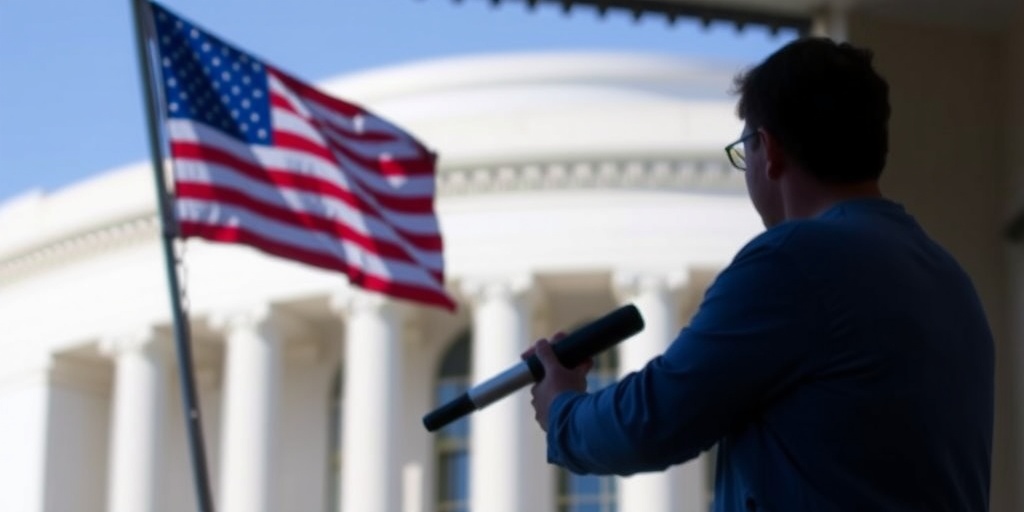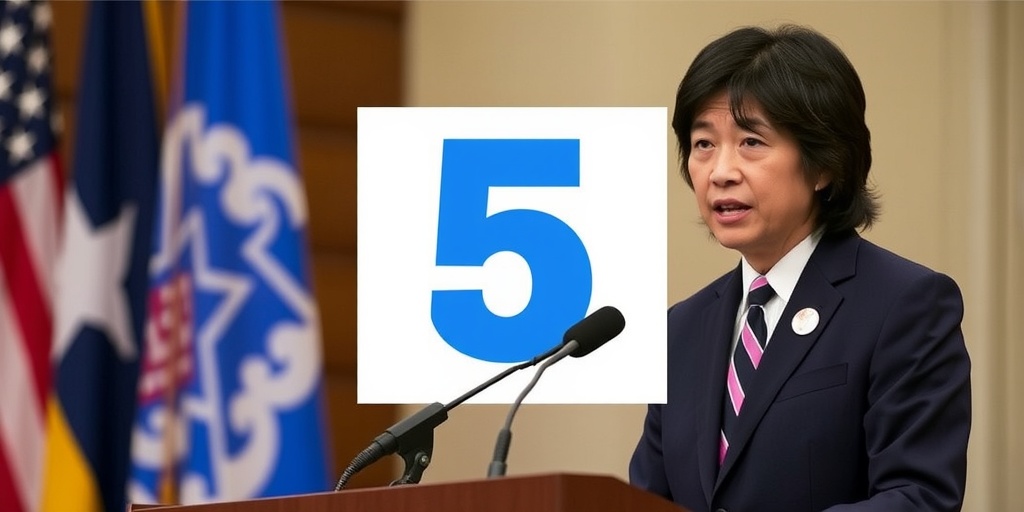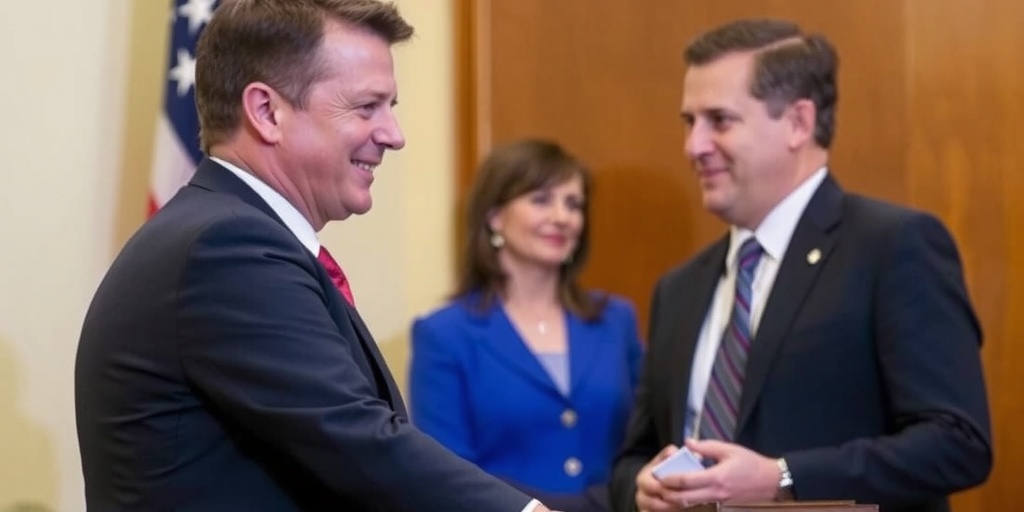Now Reading: Jack Smith’s Accountability Push Leads to Increased Freedom for Trump
-
01
Jack Smith’s Accountability Push Leads to Increased Freedom for Trump
Jack Smith’s Accountability Push Leads to Increased Freedom for Trump
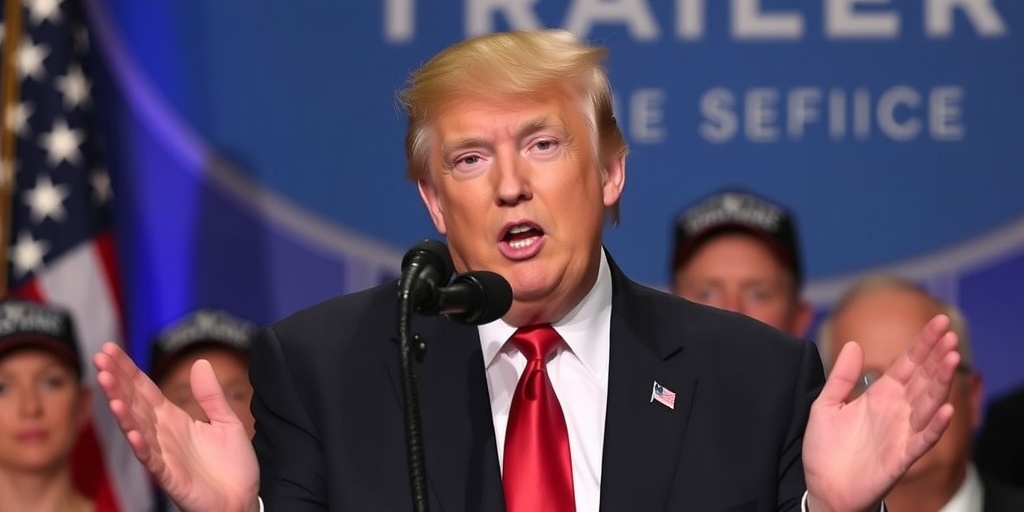
Title: The Legacy of Jack Smith: A Special Counsel’s Unfulfilled Promise
In a closing statement he never had the chance to present to a jury, Jack Smith, the former special counsel who investigated Donald J. Trump, expressed the conviction that his thwarted prosecution was justified, stating that his team’s commitment to justice serves as a model for others. Smith emphasized in his final report—released late at night while much of America was asleep—that although his team was unable to bring cases to trial, their effort to uphold the rule of law was significant.
However, the outcome of Smith’s tenure may have inadvertently strengthened Trump’s position and future presidential immunity against legal scrutiny. As Smith concludes his tenure in the most pivotal prosecutorial role in the country over the last two years, the ripple effects of his work have left the Justice Department poised to enter a potential second Trump administration with diminished authority to pursue legal action against a sitting president, particularly following a groundbreaking Supreme Court ruling that conferred extensive immunity to presidents.
Reflecting on Smith’s tenure, Peter Zeidenberg, a lawyer with experience in special counsel investigations during the George W. Bush administration, stated, "I have a lot of respect and sympathy for Jack Smith. His efforts were unsuccessful, but not through any fault of his own. The roadblocks he faced were insurmountable." Key court rulings, particularly from Trump-appointed judges, severely limited Smith’s prosecutorial capacity, leaving many to question the Justice Department’s capability to achieve justice in cases involving a former president.
The Supreme Court’s recent decision significantly alters the legal landscape, effectively reversing the longstanding principle that no one is above the law. Zeidenberg anticipates that the likelihood of appointing special counsels may vanish in a second Trump term, given these evolving legal norms. When Smith was appointed special counsel in November 2022, briefly after Trump announced his re-election bid, he seemed an ideal candidate. His previous experience with public corruption and war crimes prosecutions indicated a readiness to tackle challenges head-on.
However, what began as promising legal pursuits quickly turned into setbacks. In 2023, Smith charged Trump with conspiring to obstruct the results of the 2020 election and indicted him for mishandling classified documents. These historic indictments marked the first instance of a former U.S. president facing federal charges, yet Smith’s attempts to prosecute were obstructed by judges who ruled favorably for Trump, subsequently undermining the legal frameworks that could regulate presidential authority.
In one notable case, Judge Aileen M. Cannon dismissed the classified documents charges, suggesting Attorney General Merrick B. Garland lacked the legal authority to appoint a special counsel from outside the Justice Department. This ruling contradicted decades of established judicial precedent and Justice Department practices. Smith’s appeals may never reach higher courts due to the likely dismissal of the case by an incoming Trump administration, leaving unresolved questions surrounding the power and mandate of special counsels.
The introduction of a new Supreme Court doctrine declaring that presidents are presumptively immune from prosecution for actions linked to their official duties underscores the challenges ahead. Without clear precedent or constitutional backing, this ruling may encourage future executive branch lawyers to interpret presidential immunity broadly, including discussions regarding investigations with the Justice Department.
Robert Mintz, a former federal prosecutor, remarked on the long-term ramifications of Smith’s work, observing that the Justice Department miscalculated both the timing of his appointment and Trump’s ability to politicize the investigation. Smith’s aggressive prosecutorial style has previously led to rulings that have weakened legal constraints on politicians, as seen in the case of former Virginia Governor Bob McDonnell, whose corruption conviction was ultimately overturned by the Supreme Court.
The outcome of Smith’s investigations may set a troubling precedent for the accountability of future presidents, raising fears that with each legal battle lost, the walls protecting presidential behavior from scrutiny continue to erode. Smith’s recent challenges may signal a chilling effect on the willingness of any future attorney general to pursue potentially controversial cases against a sitting or former president.
As Smith’s term concludes, his final report’s fate remains uncertain, with some portions being withheld amidst ongoing litigation, particularly concerning the classified documents case. What began as a significant test of the nation’s legal systems, culminating in historic indictments, has resulted in an at-times tumultuous journey marked by judicial setbacks and substantial implications for presidential accountability. The narrative of Smith’s prosecution attempts suggests a cautious and possibly embattled future for anyone seeking to hold the executive branch accountable in the changing landscape of American governance.
Stay Informed With the Latest & Most Important News
Previous Post
Next Post
-
 01New technology breakthrough has everyone talking right now
01New technology breakthrough has everyone talking right now -
 02Unbelievable life hack everyone needs to try today
02Unbelievable life hack everyone needs to try today -
 03Fascinating discovery found buried deep beneath the ocean
03Fascinating discovery found buried deep beneath the ocean -
 04Man invents genius device that solves everyday problems
04Man invents genius device that solves everyday problems -
 05Shocking discovery that changes what we know forever
05Shocking discovery that changes what we know forever -
 06Internet goes wild over celebrity’s unexpected fashion choice
06Internet goes wild over celebrity’s unexpected fashion choice -
 07Rare animal sighting stuns scientists and wildlife lovers
07Rare animal sighting stuns scientists and wildlife lovers













